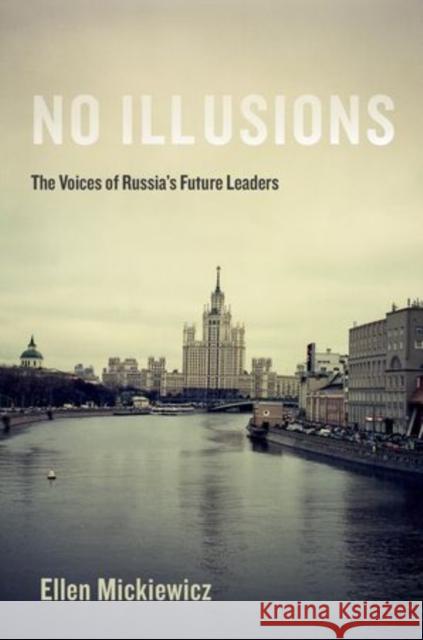No Illusions: The Voices of Russia's Future Leaders » książka
topmenu
No Illusions: The Voices of Russia's Future Leaders
ISBN-13: 9780199977833 / Angielski / Twarda / 2014 / 264 str.
Now with a new chapter on the reported US-Russia media "war"
How will the future leaders of Russia regard the world scene? How will they regard democracy, free speech, and immigration? And what sorts of tactics will they bring to international negotiating tables, where politics and economics are central? These young people have strong and surprising views about their country and its leadership, the United States, and the international arena - and they trust each other and the world only with deep reservations and, often, fear. One concept that has come to dominate the discussion around trust and international relations with Russia is "information weaponization." The paperback edition of No Illusions: The Voices of Russia's Future Leaders features a new chapter analyzing this clamorous issue, exploring with new research this rapidly expanding source of policy making. To what extent and why is the weaponization idea so widespread and influential in NATO and many Western governments, media, and think tanks? How does it stand up to evidence? Equally important are urgent questions about the Russians who are rising in government institutions: how to understand and predict their attitudes? No Illusions provides an engaging, intimate, and unprecedented window into the mindsets of the next generation of leaders in Russian politics, business, and economics. In this book, one hundred and eight students in Russia's three most elite universities, the training grounds for the nation's leadership, reveal their thoughts on international relations, neighboring countries, domestic and international media, democratic movements, and their government in focus groups; they speak candidly, passionately, and sometimes sardonically about the United States. As well, Ellen Mickiewicz, one of the world's foremost experts on Russian media, politics, and culture, shows how their total immersion in the world of the internet -- an immersion that sets them apart from the current generation of Russian leadership and much of the rest of the country -- frames the way that they think and affects their trust in their leaders, the media, and their colleagues. Their worldviews are complex and often contradictory, reflecting complicated personalities that are adaptable yet also subject to much internal strife and "splintering." For example, while many of them are planning to go into politics, they express ambivalence about voting; they have favorable views of democracy, but not of the American model; they are shrewd critics of government propaganda and yet have clearly absorbed residue of Cold War defensiveness. Mickiewicz also looks at the nation's massive protests and nascent political movements to show how they came about and to consider what promise they might hold even in times of narrowing opportunities. She profiles several of Russia's up-and-coming leaders, including charismatic and controversial activist and politician Aleksei Navalny, who, even during his legal trials and house arrest, remains the face of the opposition to the Putin regime. As this book shows, the next generation of Russian leadership promises to hold a rather different worldview from that of the current one, yet it is not a worldview that readily embraces American democracy. No Illusions is a thought-provoking and often surprising glimpse into the future of Russia's foreign relations.










